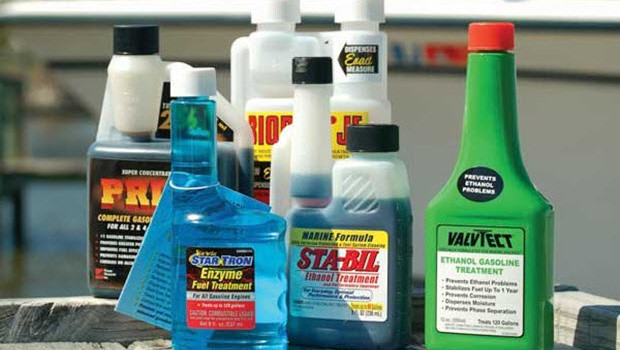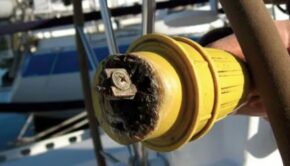Fuel Additives: Snake Oil or Good Science?
Published on September 21st, 2015
by Darrell Nicholson, Practical Sailor
As one who has spent many hours in exotic locations, cycling bad diesel fuel through a make-shift filtration system, I am as vulnerable as anyone to the promises of a quick and easy solution to fuel problems.
In 2007, Practical Sailor warned of the problems related to ethanol-laced fuel (E10), and in 2008, we tested various products claiming to prevent problems related to ethanol and found varying degrees of success. In 2009, we looked at diesel fuel additives formulated to attack biological bugs that thrive in diesel. In the summer of 2012, we looked at gasoline additives, taking a closer look at the standards the industry is using to separate the snake oil from the elixirs. And this fall, we’ll be publishing the first report in our long-term study of fuel additives for storage.
While the ethanol problem has brought a mountain of headaches to boaters, it has ignited a booming trade in fuel additives. Back in 2012, at the Miami boat show, I heard Gerald Nessenson, president of ValvTect Petroleum Products, talk about the state of the finished fuel-additive industry and what established companies such as his are trying to do to fend off what he feels are unsupportable claims by small upstart companies.
Nessenson was quick to point out that the finished gasoline at our pumps already includes a range of additives that deal with issues such as corrosion, fuel oxidation, and deposit build-up. He added that the harsh marine environment presents special challenges and cited the well-documented ethanol-related problems in outboards as evidence that boaters need to be more cognizant of their choices when selecting, storing, and—if necessary—treating their fuel.
But when it comes to comparing the fuel treatment products on the market, consumers are effectively left in the dark. – Full report









 We’ll keep your information safe.
We’ll keep your information safe.